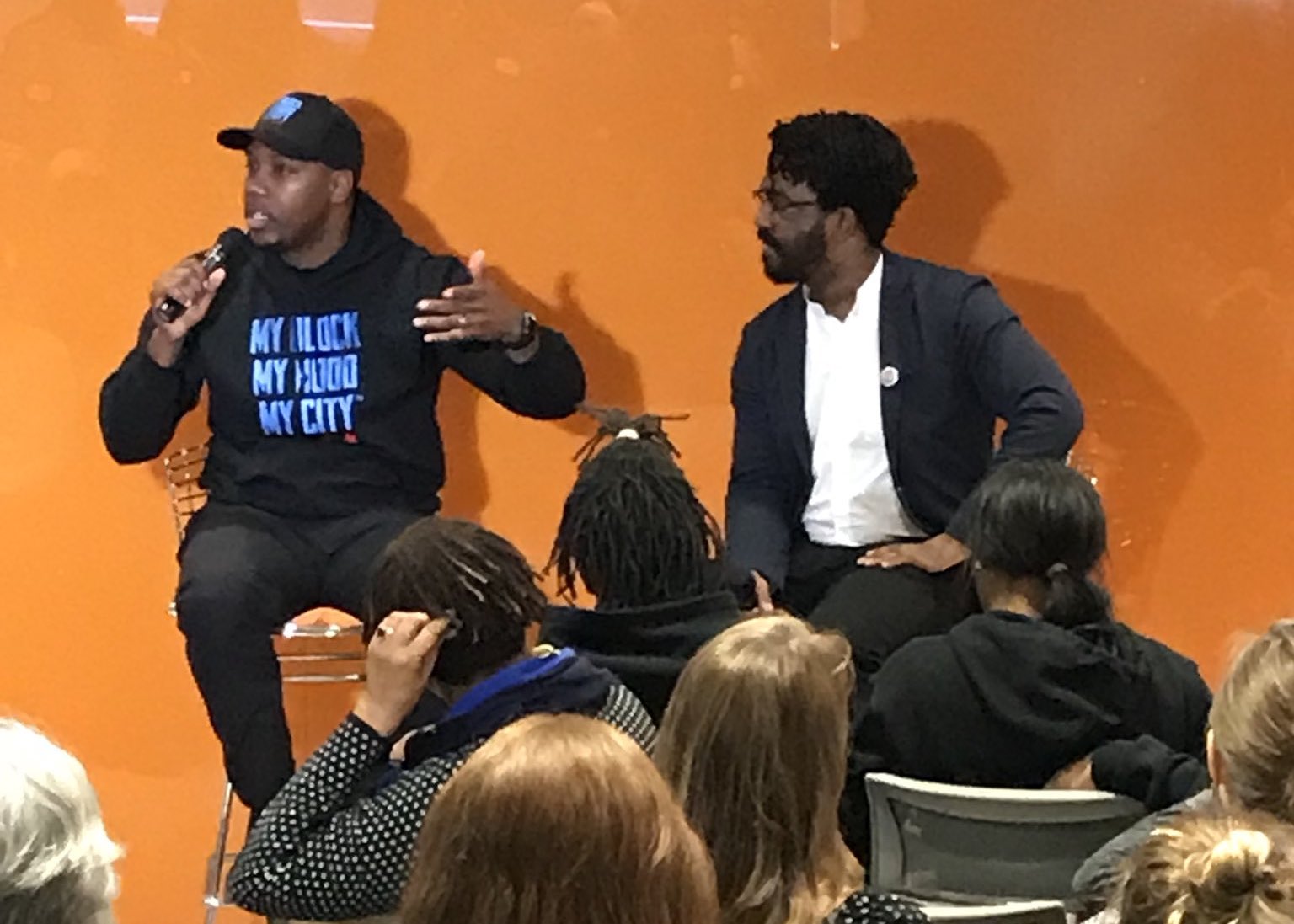"I think it should be free."
This was Jahmal Cole's opinion about the CTA system. A full house of over a hundred people at a meeting sponsored by the Metropolitan Planning Council assented and applauded Mr. Cole's statement. Cole is the author of Exposure Is Key: Solving Violence By Exposing Teens To Opportunities. On March 15, the native Chicagoan spoke at a meeting moderated by Darryl Holiday, editorial director and co-founder of City Bureau.
Cole is the founder of My Block, My Hood, My City, a program designed to expose youth to new experiences outside of their immediate surroundings, proving that you can do as much travelling in a huge city like Chicago as you can around the country. His program has also been instrumental in helping teenagers overcome negative forces such as poverty or low grades. Four successful kids from his program – Deontae Lewis, Dominetrius Chambers, Dimetriana Chambers and Marquell Washington – were in attendance at the event.
"Out of all the big ideas," said Cole, "I think it should be free, and it should be extended. I used to ride the Red Line every day. Literally for like eight years I rode the Red Line. It’s like the aorta of Chicago. It changes so fast – you go from Chinatown to 47th to 63rd to 69th, 79th, 87th, 95th, I just love it. I would definitely make it extended farther than 95th street, and I would make it cheaper to ride."
His implication was that since he was encouraging everybody to see beyond their own block, that public transit should be free so people could actually do that.
Cole, a community organizer in Chicago's Chatham area, made headlines last month when a call for ten people to help shovel snow during a blizzard soon ballooned into 120. He is a tireless believer in the idea of a community, whether it involves taking care of your own or exploring other people's. He is especially concerned with keeping youth busy by having them explore the city, staying active without resorting to violence. As he states: “somebody’s gotta try something to solve violence in Chicago. If you show somebody better, then they’ll do better. They’ll be less inclined towards violence. If you take them out of their comfort zone and you exposed them to different cultures, different professions, different cuisines…”
Cole first got the bug to explore different places after a Greyhound bus trip to Texas as a kid, seeing "the Chicago skyline turn into the Illinois cornfields. I was a little bit more adventurous than my brothers or my cousins. When I told my mom I wanted to go to college, she was like: 'oh, you're trying to be white.' When I told my friends I was going to college, they said 'I ain’t leavin’ the block' – my jaw broke."
Cole talked a lot about segregation, saying, "Chicago is one of the most segregated cities in the U.S., unfortunately, so the distinction between the black, white and Hispanic communities is very visible."
MPC, the hosts, recently co-authored a study with the Urban Institute quantifying how costly it is to have a segregated city and region. Cole continued, saying, "Segregation has created socio-economic isolation and exclusion in which minorities, specifically African-Americans, have higher vulnerability to things like poverty and crime."
To change that situation, he said, "we need more people, young and old, to visit community areas outside of their own. When most people hear about something negative happen in another Chicago community, especially where people are a lot different from them, it might as well have happened in another country. When you actually visit communities and interact with the residents, it changes all that."
Cole says that this way of thinking isn't unique to Chicago. "I went to college in Nebraska. A lot of those people in Nebraska had never stepped outside of their comfort zone. My first day on campus, they came up to me and said 'Jahmal! Here’s a cell phone! Talk to my little brother, he’s never talked to a black basketball player before! Holler at him!' And I’m in the middle of Nebraska, I’m like: how do you want me to talk? Like ‘yo, whassup?’ I don’t even talk like that, but to those kids in Nebraska, they’re isolated, and isolation leads to narrow mindedness no matter where you live. When you live in Englewood, you can be isolated as well. I believe to be better people, we need to be more interconnected.”
Marquell Washington, a high school sophomore who is involved with Cole's program, offers high praise for Cole's efforts. “This program taught me how to go out and be a better person than the people who were surrounding me. Jahmal is like a mentor to me, and basically I look up to him. I saw him do it, I said, 'okay, let me try it'.”






